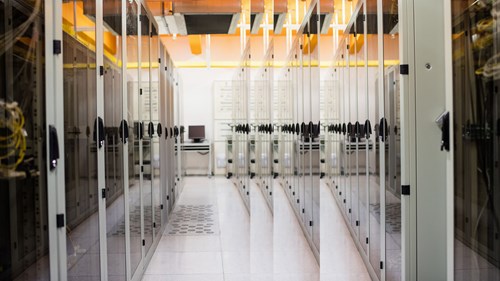Growth despite polycrisis: New study emphasizes the importance of corporate resilience through innovation and openness to technology
At a time when companies are facing increasing challenges, the GERMANTECH Foundation, together with law firm Noerr, EY-Parthenon, the Hasso Plattner Institute and ada Learning, is publishing a groundbreaking study today in Davos, in a side event to the WEF, which takes an in-depth look at business resilience, particularly considering the crucial role of Artificial Intelligence (AI).
The study, entitled "Company Resilience - Achieving Growth in Times of Polycrisis", takes an in-depth look at the complex interactions between AI, good leadership and corporate culture and highlights the key areas that companies need to consider in order to strengthen their resilience.
The study shows that resilient companies are significantly better able to hold their own in the current situation. Only 3.2% of resilient companies are currently in a recession. In contrast, 35% of non-resilient companies are currently in a recession.
Overall, the study comes up with several key findings, which are also backed up with practical implementation suggestions for leaders.
While 84% of the companies surveyed have a resilient core, only 34% are able to turn challenges into opportunities and achieve above-average growth compared to the market and competition. Especially in the current situation, it is therefore essential that resilience is treated as a strategic priority by leaders.
Another interesting finding is that only half of the resilient companies surveyed stated that they have an open failure culture. "I find it surprising that after decades of discussion about the importance of a failure culture for a company's ability to innovate, around half of resilient companies are still a long way from achieving this goal," says Maria Gross, Managing Director of GERMANTECH.
The topic of artificial intelligence (AI) is also examined in the study. Despite the recognized importance of AI and digitalization, there is a significant gap in strategic integration and use across corporate functions. A third of the managers surveyed state that they are not aware of the potential of AI across their entire value chain.
Michael Gröger, Managing Director of GERMANTECH, comments: "In order to build resilience, we recommend that all companies get to grips with technological possibilities such as AI as soon as possible. We see that AI can provide essential support in solving many of the problems that companies need to solve in the current polycrisis."
Felix Blobel, Partner at Noerr and co-head Private Equity: “Resilience of corporations and businesses is not static, but a dynamic process. It requires constant adjustments and adaptations to new technological, commercial, scientific and regulatory developments. Embracing new technologies, investing in training, learning and workforce development, and creating a mindset within the organization that promotes a value-based and responsible application of artificial intelligence tools can help enhance a corporation’s resilience.“
Torsten Kraul, partner at Noerr and co-head Digital Business: “We expect AI-driven technologies to soon become pervasive in virtually all business areas and industries, impacting on the way companies are managed, develop their products or services and engage with their employees, customers and stakeholders, thereby testing the limits of existing legal and regulatory frameworks and prompting new and presumably diverse legislative responses.”
The topics of corporate culture, employee empowerment and financial stability are also examined in the study and backed up with recommendations for action.
The complete study is now available for download at www.companyresilience.com.











